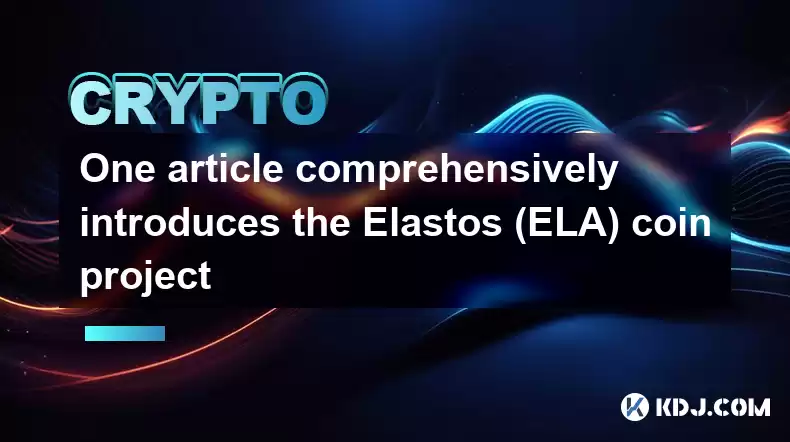-
 Bitcoin
Bitcoin $115000
0.12% -
 Ethereum
Ethereum $3701
4.50% -
 XRP
XRP $3.081
2.99% -
 Tether USDt
Tether USDt $0.0000
-0.01% -
 BNB
BNB $767.9
1.45% -
 Solana
Solana $169.5
3.13% -
 USDC
USDC $0.9999
0.01% -
 Dogecoin
Dogecoin $0.2106
4.30% -
 TRON
TRON $0.3334
1.62% -
 Cardano
Cardano $0.7564
2.54% -
 Stellar
Stellar $0.4165
0.76% -
 Hyperliquid
Hyperliquid $38.75
0.25% -
 Sui
Sui $3.593
3.00% -
 Chainlink
Chainlink $17.08
3.59% -
 Bitcoin Cash
Bitcoin Cash $573.6
4.35% -
 Hedera
Hedera $0.2508
-0.84% -
 Avalanche
Avalanche $23.07
6.46% -
 Ethena USDe
Ethena USDe $1.001
-0.02% -
 Litecoin
Litecoin $120.8
8.17% -
 UNUS SED LEO
UNUS SED LEO $8.943
-0.32% -
 Toncoin
Toncoin $3.400
-5.60% -
 Shiba Inu
Shiba Inu $0.00001255
1.54% -
 Uniswap
Uniswap $9.908
6.32% -
 Polkadot
Polkadot $3.718
2.10% -
 Monero
Monero $303.0
-0.74% -
 Dai
Dai $0.9999
-0.02% -
 Bitget Token
Bitget Token $4.392
0.91% -
 Cronos
Cronos $0.1403
6.31% -
 Pepe
Pepe $0.00001076
1.13% -
 Aave
Aave $267.2
1.80%
One article comprehensively introduces the Elastos (ELA) coin project
Elastos, a blockchain-based operating system, empowers the creation of decentralized applications in a secure and scalable ecosystem, offering functionalities beyond Ethereum's smart contract execution.
Jan 02, 2025 at 02:30 pm

Key Points:
- Elastos (ELA): A Blockchain-Based OS for Decentralized Applications (dApps)
- ELA Tokenomics: Functionality, Distribution, and Value Proposition
- Highlighting the Security and Scalability of the Elastos Network
- Ecosystem Overview: Building Blocks and Supporting Tools
- Use Cases and Real-World Applications of Elastos
- Future Roadmap and Development Updates
- Token Acquisition and Investment Strategies
Elastos (ELA): A Comprehensive Guide
1. Conceptual Understanding:
Elastos is a revolutionary blockchain-based operating system that empowers the creation, deployment, and execution of decentralized applications (dApps). It aims to foster a secure and interconnected ecosystem where users can develop, distribute, and utilize dApps seamlessly, without external dependencies or intermediaries. By introducing a new layer of interoperability and accessibility, Elastos paves the way for a truly decentralized and user-centric digital landscape.
2. ELA Tokenomics: Functionality and Value Proposition:
The Elastos native token, ELA, serves as the backbone of the Elastos ecosystem and encompasses a wide range of functionalities, including:
- Network gas: ELA fuels transactions, incentivizing network participants to secure the blockchain.
- Security deposit: ELA is required as a security deposit for deploying smart contracts, ensuring responsible development and minimizing malicious activities.
- Governance: ELA holders have the right to participate in Elastos' on-chain governance, shaping the project's future direction.
3. Security and Scalability: Cornerstones of Elastos
Elastos prioritizes network security through rigorous implementation of cryptographic algorithms, secure communication protocols, and distributed consensus mechanisms. It adopts proof-of-work (PoW) consensus, ensuring the integrity and reliability of the blockchain. Moreover, Elastos employs sharding and sidechain technologies to enhance transaction throughput and scalability, enabling the network to handle a vast volume of dApp transactions.
4. Ecosystem Overview: Essential Building Blocks
The Elastos ecosystem encompasses various interlocking components that facilitate the development and deployment of dApps. These include:
- Carrier: A distributed network of cloud servers that provides hosting and execution environments for dApps.
- Hive: A marketplace where developers can publish and distribute dApps securely and efficiently.
- Sidechains: Customizable blockchain networks that extend the functionality of the Elastos blockchain, enabling targeted use cases.
5. Use Cases and Real-World Applications
Elastos' decentralized infrastructure finds applications across diverse industries and sectors:
- Decentralized Social Media: Building user-governed platforms that empower users to control their data and privacy.
- Digital Infrastructure: Enabling secure and cost-effective storage, networking, and computing services without relying on centralized providers.
- Smart Contracts and DeFi: Developing decentralized applications that execute contracts automatically, unlocking new possibilities for financial services.
- Digital Identity and Authentication: Creating tamper-proof digital identities that enable seamless access to online services while preserving privacy.
6. Future Roadmap and Development Updates
Elastos maintains an active development roadmap, focusing on continuous improvement and innovation. Recent updates include the launch of the DID Sidechain, enhancing self-sovereign identity management, and the ongoing development of the Elastos Smart Contract Engine, which promises increased flexibility and performance for dApp development. As the ecosystem matures, Elastos anticipates further partnerships, strategic collaborations, and the emergence of novel use cases.
7. Token Acquisition and Investment Strategies
ELA can be acquired through:
- Exchanges: ELA is listed on reputable cryptocurrency exchanges, allowing investors to trade the token with global liquidity.
- Over-the-Counter (OTC) Trading: Off-exchange platforms facilitate direct purchases and sales of ELA, often involving larger transactions and negotiated rates.
- Elastos Website: A portion of newly minted ELA is released periodically through the Elastos website, allowing individuals to participate in the distribution process.
FAQs:
Q: What is the difference between Elastos and Ethereum?
A: Elastos provides a complete decentralized operating system for building dApps, while Ethereum is primarily a blockchain for executing smart contracts. Elastos focuses on creating a comprehensive ecosystem for dApp development, offering scalability, data privacy, and user experience tailored to dApp requirements.
Q: What are the unique features of the Elastos Carrier?
A: The Elastos Carrier is a distributed network of cloud servers that operates as a decentralized hosting environment for dApps. It provides developers with on-demand computing resources, allowing them to deploy and scale their applications without relying on centralized providers.
Q: How does Elastos ensure the privacy of dApp users?
A: Elastos incorporates various privacy-enhancing mechanisms, such as encrypted data storage, decentralized identity management, and user control over personal data. It allows dApp developers to build privacy-conscious applications, protecting sensitive information and empowering users.
Disclaimer:info@kdj.com
The information provided is not trading advice. kdj.com does not assume any responsibility for any investments made based on the information provided in this article. Cryptocurrencies are highly volatile and it is highly recommended that you invest with caution after thorough research!
If you believe that the content used on this website infringes your copyright, please contact us immediately (info@kdj.com) and we will delete it promptly.
- Bitcoin, Fed Rate Cut, and Crypto Stocks: A New Yorker's Take
- 2025-08-05 14:50:12
- Police, Cryptocurrency, Bitcoin Windfall: Unexpected Gains and Cautionary Tales
- 2025-08-05 15:30:12
- MAGACOIN: The Next Shiba Inu ROI? A Crypto Presale Deep Dive
- 2025-08-05 15:30:12
- Bitcoin, Kiyosaki, and the August Curse: Will History Repeat?
- 2025-08-05 14:50:12
- Crypto Airdrops: Your August 2025 Guide to Free Tokens & Opportunities
- 2025-08-05 13:45:13
- Luxury Dining Reimagined: St. Regis Singapore & Marriott's Culinary Celebration
- 2025-08-05 13:45:13
Related knowledge

What is Chainlink (LINK)?
Jul 22,2025 at 02:14am
Understanding Chainlink (LINK): The Decentralized Oracle NetworkChainlink is a decentralized oracle network designed to bridge the gap between blockch...

What is Avalanche (AVAX)?
Jul 22,2025 at 08:35am
What is Avalanche (AVAX)?Avalanche (AVAX) is a decentralized, open-source blockchain platform designed to support high-performance decentralized appli...

What is Polkadot (DOT)?
Jul 19,2025 at 06:35pm
Understanding the Basics of Polkadot (DOT)Polkadot (DOT) is a multi-chain network protocol designed to enable different blockchains to transfer messag...

What is Litecoin (LTC)?
Jul 23,2025 at 11:35am
Overview of Litecoin (LTC)Litecoin (LTC) is a peer-to-peer cryptocurrency that was created in 2011 by Charlie Lee, a former Google engineer. It is oft...

What is Monero (XMR)?
Jul 21,2025 at 10:07am
What is Monero (XMR)?Monero (XMR) is a decentralized cryptocurrency designed to provide enhanced privacy and anonymity for its users. Unlike Bitcoin a...

How to add indicators to Ethereum chart on TradingView?
Jul 19,2025 at 07:15am
What Is an Ethereum Chart on TradingView?The Ethereum chart on TradingView is a visual representation of the price movement of Ethereum (ETH) over a s...

What is Chainlink (LINK)?
Jul 22,2025 at 02:14am
Understanding Chainlink (LINK): The Decentralized Oracle NetworkChainlink is a decentralized oracle network designed to bridge the gap between blockch...

What is Avalanche (AVAX)?
Jul 22,2025 at 08:35am
What is Avalanche (AVAX)?Avalanche (AVAX) is a decentralized, open-source blockchain platform designed to support high-performance decentralized appli...

What is Polkadot (DOT)?
Jul 19,2025 at 06:35pm
Understanding the Basics of Polkadot (DOT)Polkadot (DOT) is a multi-chain network protocol designed to enable different blockchains to transfer messag...

What is Litecoin (LTC)?
Jul 23,2025 at 11:35am
Overview of Litecoin (LTC)Litecoin (LTC) is a peer-to-peer cryptocurrency that was created in 2011 by Charlie Lee, a former Google engineer. It is oft...

What is Monero (XMR)?
Jul 21,2025 at 10:07am
What is Monero (XMR)?Monero (XMR) is a decentralized cryptocurrency designed to provide enhanced privacy and anonymity for its users. Unlike Bitcoin a...

How to add indicators to Ethereum chart on TradingView?
Jul 19,2025 at 07:15am
What Is an Ethereum Chart on TradingView?The Ethereum chart on TradingView is a visual representation of the price movement of Ethereum (ETH) over a s...
See all articles

























































































